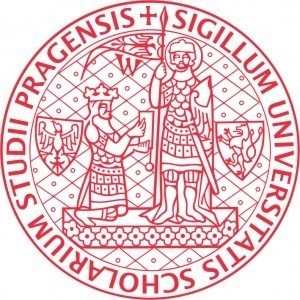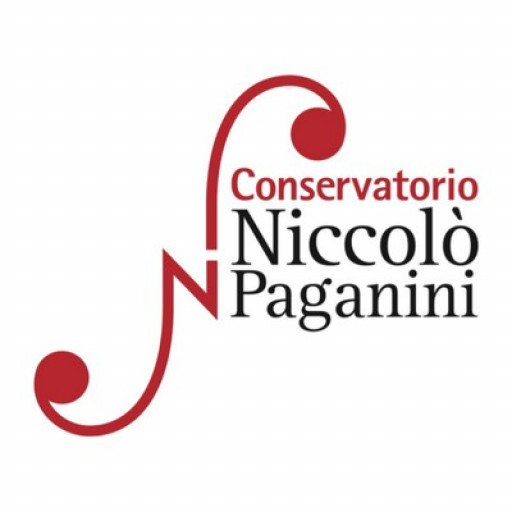Photos of university / #stockholmuniversity
Master's Programme in Literature with a Specialization in Lusophone Literature at Stockholm University offers students an in-depth exploration of literary texts, cultures, and contexts within the Lusophone world. This programme is designed for students who wish to develop advanced skills in literary analysis, research, and critical thinking, with a particular focus on the Portuguese-speaking countries from Africa, Asia, Europe, and Latin America. Throughout the programme, students will engage with a diverse range of literary works, including contemporary and classical texts, exploring themes such as identity, postcolonialism, language, and cultural exchange. The curriculum combines theoretical frameworks with practical analysis, enabling students to critically examine texts and develop their own scholarly perspectives.
Students will have the opportunity to study in an international academic environment, benefiting from the expertise of faculty members specialized in Lusophone literature and related fields. The programme emphasizes active participation in seminars, independent research, and master's thesis writing, providing a comprehensive platform for academic growth. Graduates from this programme will be well-equipped for careers in academia, publishing, cultural institutions, or international organizations involved with Lusophone countries. The programme also prepares students for doctoral studies and research positions, fostering further engagement with literary and cultural studies. With a strong focus on both literary history and contemporary issues, this master's programme offers a unique perspective on the Lusophone world through its rich literary heritage and ongoing cultural developments.
This Master's degree program in Literature with a Specialization in Lusophone Literature at Stockholm University offers an in-depth exploration of the literary traditions and cultural expressions of Portuguese-speaking countries. Throughout the program, students will examine a wide array of literary texts from Portugal, Brazil, Angola, Mozambique, and other Lusophone nations, analyzing their historical contexts, thematic developments, and stylistic features. The curriculum combines theoretical frameworks with close textual analysis, enabling students to critically engage with diverse literary works and understand their significance within global and regional narratives.
The program emphasizes interdisciplinary approaches, integrating perspectives from cultural studies, linguistics, and history to provide a comprehensive understanding of Lusophone literature. Students will have the opportunity to study literary genres including poetry, prose, and drama, and explore how these forms reflect social, political, and cultural changes within Lusophone societies. Courses cover topics such as postcolonialism, identity, migration, and language politics, fostering critical discussions about power, representation, and resistance in literature.
Throughout the degree, students will develop advanced language competencies in Portuguese, enabling them to read and interpret original texts with nuance and depth. They will also participate in seminars, workshops, and independent research projects, culminating in a Master's thesis that contributes to scholarly discourse on Lusophone literature. The program prepares graduates for careers in academia, cultural management, translation, journalism, and international organizations engaged with Lusophone countries.
With a vibrant academic community and close ties to cultural institutions and research centers, the program provides an enriching environment for personal and professional development. Students benefit from visiting scholars, cultural events, and access to extensive library and digital resources. Upon completion, graduates will possess specialized knowledge of Lusophone literary traditions, critical skills for literary analysis, and a deep understanding of the cultural contexts shaping these works, equipping them to contribute meaningfully to the global understanding of Lusophone identities and narratives.
The master's program in Literature with a specialization in Lusophone Literature at Stockholm University requires applicants to hold a Bachelor's degree or an equivalent qualification in Literature, Comparative Literature, or a related field. Prospective students must demonstrate proficiency in English, typically confirmed through standardized tests such as TOEFL or IELTS, or by holding previous education in English. The program is designed to provide advanced knowledge of literature from Portuguese-speaking countries, including Portugal, Brazil, and other Lusophone regions.
Admission criteria also include a demonstrated interest in Lusophone cultures and literatures, which is often assessed through a submitted letter of motivation and relevant academic transcripts. The program emphasizes critical analysis, understanding of literary history, and the ability to interpret texts within their cultural and historical contexts. Applicants are encouraged to submit a sample of academic writing demonstrating their analytical and language skills related to literary studies.
The program structure combines obligatory courses with electives, allowing students to tailor their studies towards specific interests within Lusophone literature. Typically, students are required to complete a certain number of credits through coursework, which may include seminars, lectures, and independent study. A significant component involves a thesis project in Lusophone literature, where students conduct original research under supervision.
In addition, students may have opportunities to participate in seminars with visiting scholars, attend literary events, and engage in inter-university exchanges to deepen their understanding of Lusophone cultures. Studio workshops, language courses, and cultural excursions might also complement the academic curriculum to enhance practical skills and cultural competence. Graduates of the program will be equipped with specialized knowledge suitable for careers in academia, translation, cultural management, publishing, and journalism related to Lusophone countries.
Financing studies for the Master's Programme in Literature with a Specialization in Lusophone Literature at Stockholm University can be supported through various sources of funding. Students may initially consider scholarships offered by the university, which are available based on academic merit or national/regional eligibility criteria. These scholarships can cover partial or full tuition fees, providing substantial financial assistance to enrolled students. Furthermore, students are encouraged to explore government-funded grants and loans available in their home countries, some of which may be transferable or applicable to international studies in Sweden.
Stockholm University also participates in international scholarship programs, such as Erasmus+ and other bilateral agreements, which facilitate mobility and financial support for students studying abroad. Additionally, students can seek external funding through foundations, cultural organizations, or the Swedish Institute, which supports students pursuing studies in Sweden, especially those from developing countries or regions with cultural ties to Sweden.
Students should also consider work opportunities on or off campus, as international students in Sweden are generally permitted to work part-time during their studies, which can help offset living costs. The university provides guidance and resources to help students find suitable employment and manage their finances effectively during their academic year.
It is important for prospective students to carefully plan their finances and apply for available scholarships and grants early, as competitiveness varies, and funding sources have specific eligibility criteria and application deadlines. Overall, while studying at Stockholm University offers high-quality education, prospective students should be proactive in exploring all financial aid opportunities to ensure comprehensive support throughout their studies.
The Master's Programme in Literature with a Specialization in Lusophone Literature at Stockholm University offers students an in-depth exploration of literary traditions, cultures, and languages within the Lusophone world, which includes Portugal, Brazil, and other Portuguese-speaking countries. This program is designed for students who want to deepen their understanding of Lusophone literary history, contemporary issues, and language nuances. It provides rigorous training in literary analysis, critical theory, and cultural studies, enabling graduates to pursue academic careers, research, or professional work in the fields of literature, education, publishing, or cultural management.
The curriculum typically encompasses a variety of courses focusing on classical and modern Lusophone literary works, as well as courses in linguistic competencies to enhance language proficiency. Students engage with a diverse array of texts, including poetry, prose, drama, and film, analyzing them through various critical lenses. The program emphasizes both theoretical frameworks and practical skills, such as academic writing, presentation, and research methodology.
Throughout the programme, students may have opportunities to participate in seminars, workshops, and guest lectures led by scholars from around the world, fostering a vibrant academic community and encouraging intercultural dialogue. The program also often includes a thesis component, where students undertake independent research under supervision, contributing original insights to the field of Lusophone studies.
Stockholm University's reputation for strong research and its international environment make it an ideal place to study Lusophone literature. The university’s resources include extensive digital and physical libraries, access to scholarly journals, and cooperation with academic institutions and cultural organizations globally. Graduates of this programme are well-equipped to continue doctoral research, work in cultural institutions, or engage in media and communication sectors that focus on Lusophone regions. With a comprehensive curriculum, expert faculty, and a vibrant academic community, the programme prepares students to become knowledgeable and influential voices in the study of Lusophone literature and culture.






